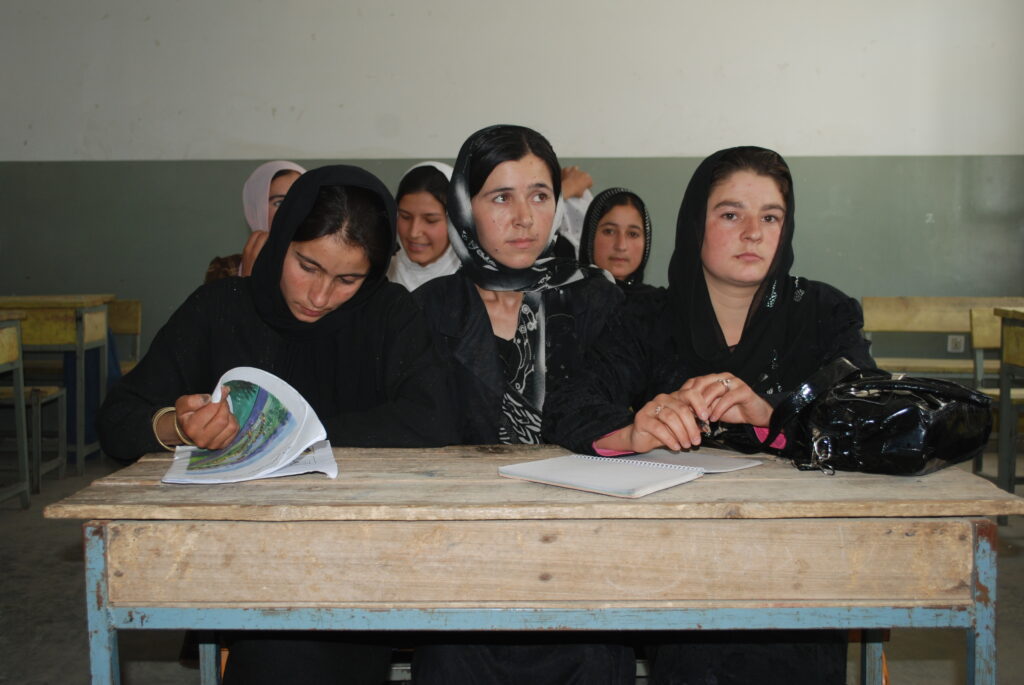Two years after insurgents captured the city of Kabul, it is apparent that the ruling regime is not, as many had hoped, a kinder, gentler Taliban. From the rollback on everyday freedoms to restrictions on access to education, marginalized communities including, but not limited to, women and girls, continue to bear the brunt of repressive policies. Even as our sights are diverted by new and emerging global crises, the Taliban rule endures unabated.
And we have not forgotten. Every year, the wounds deepen; the crisis weighs heavier in our hearts.
I recently spent time in Vietnam and was reminded of the swift Fall of Saigon on April 30, 1975. In the ensuing years, almost 2 million Vietnamese fled the country by boat. More than 500,000 people died or disappeared.[1] Many survivors subsequently got caught in bureaucratic limbo after being denied permission to immigrate to a third country.
Fast forward to today: USA for UNHCR estimates more than 1.6 million Afghans have fled the country since 2021, bringing the total number of Afghans in neighboring countries to 8.2 million – accounting for one of the largest protracted refugee situations in the world.[2] The parallel is a dire reminder that we must not forget those who seek to build new pathways to a better future.
IIE continues to help as many individuals as possible access life-changing academic, research, and artistic opportunities, supporting them to pursue their goals despite the odds. Over the last 2 years, the IIE community has come together to help over 500 Afghan emerging leaders access the opportunities for advancement that higher education catalyzes.
IIE’s Long-Term Commitment to Afghan Students, Scholars, and Artists
IIE’s Emergency Student Fund has supported 114 students on 64 campuses, helping ensure Afghan students studying in the U.S. could remain safely enrolled at higher education institutions.
Our Scholar Rescue Fund (IIE-SRF) has supported nearly 60 talented and resilient Afghan scholars and civil society leaders, and we continue to select additional Afghans through our emergency procedures. Despite the enormous challenges they face in leaving Afghanistan and reaching safe countries, IIE-SRF’s Afghan fellows have found supportive academic homes at 32 host institutions in 9 countries (including within 13 U.S. states), where they are resuming their critically important work.
Through our Odyssey Scholarship, 25 Afghan students are now able to safely pursue degrees in the U.S., Mexico, France, Vietnam, and the Asian University for Women in Bangladesh.
Through the Artist Protection Fund, 8 Afghan artists have been awarded with host institutions secured in Canada, Germany, the Netherlands, Sweden, and the U.S.
And nearly one year ago, in collaboration with The Afghan Future Fund, Schmidt Futures, Education Above All, the Yalda Hakim Foundation, and the Qatar Fund For Development,we launched the Qatar Scholarship for Afghans Project (QSAP), a scholarship program supporting displaced Afghan students to study in the U.S.
Through QSAP we have placed 250 students at 40 U.S. colleges and universities, with approximately 91 new students to be enrolled in the coming months. These 91 new students join 93 who are continuing their U.S. academic programs. Six students from the program have already graduated, including a number that were selected for prestigious graduate program funding, including the Fulbright Student Program and a Schwarzman Scholar.
As the days roll on and global attention is once again inevitably diverted, we will remain steadfast, sending critical support to those who need it most.
[1] https://www.nbr.org/publication/the-resettlement-of-vietnamese-and-montagnard-refugees-residing-in-thailand/
[2] https://www.unrefugees.org/news/afghanistan-refugee-crisis-explained/#:~:text=More%20than%201.6%20million%20Afghans,refugee%20situations%20in%20the%20world.
